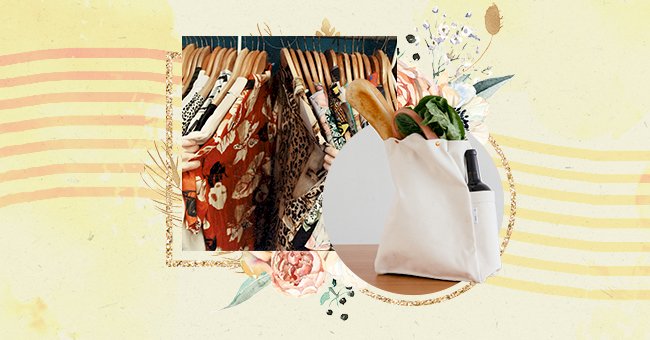
A Comprehensive Guide To Ethical Shopping
Unfortunately, asking where this product was made is not a successful way to shop ethically. Why? Because greenwashing. Greenwashing is a term you should be familiar with in your effort to become a more ethical shopper.
It's easy for a brand to market as cruelty-free or made with or without such and such materials. However, this shallow classification is unfair to consumers looking to make a more positive change. If you look deeper into the claims, you may find them to be non withstanding.
So how then can you become an ethical shopper? There are various ways to do so, and we shall get into below, but research is the best way to go if you leave with anything. It might feel overwhelming at first, but a little goes a long way in making yourself a shopper you are proud of.
What Are Your Priorities?

Photo by Dollar Gill on Unsplash
No one is perfect. In your search, you will find a company owned by a CEO that could be problematic. However, these same companies may be giving to charity, have diverse staff, and use sustainable methodology or materials to create or provide their products or services.
Therefore, you must figure out what your priorities are. What is your firm stance? Think business ethics, sustainability, animal rights, etc. Do not fear prioritizing an issue over another. Have two main ones and see where you are willing to compromise.
Terminology Scams

Photo by Green Chameleon on Unsplash
Due to considerable consumer interest in companies' transparency, many brands are seeking to meet consumer demands. However, focusing on supply chain transparency, ethics, or sustainability credentials comes at a cost.
Therefore, one thing to look out for on the companies websites is the above. So if there is no information, you know what that means. Take it a step further and investigate the terminology these 'conscious brands use. If they say they are responsible, what does that mean? To find out, you can contact them on social media.
Costs Look A Lot Different
Price is not indicative of sustainability. However, one thing is sure, being ethical does not mean cheap. That probably doesn't sound enticing, but that is the reality of the situation. Therefore a $10 shirt implies that a brand is making huge profits from undercutting manufacturing labor or using cheap materials that aren't sustainably sourced.
It is the adage that is the price is too good to be true; it is. In the same vein, do some high-priced items could also be just as unethical; therefore, this is where research would come in. One rule of thumb to remember, however, is if the price is super low, you might want to disqualify the service or item.
Check Materials
If you are focusing on fashion, you want to have a look at the materials that are used to design your site. Cotton is a fave amongst sustainable brands rather than synthetic materials. However, it does use tons of water to manufacture. Linen, hemp, silk, and bamboo are alternatively more sustainable.
If the clothes are dyed, you want to research if they have been made from natural dyes as those do not include toxic chemicals in them; this will not hurt the workers handling them. If you are vegan, note that leather alternatives are not environmentally friendly. Genuine leather is less damaging. Recycled leather is where you want to focus as they are a byproduct of the meat industry.
Strive To Go Local
All around the world, there are great ethical options. However, shipping does leave a significant carbon footprint, especially if the item needs to be returned. So try and shop locally.
Third-Party Websites
On the topic of going local, you always want to double-check. We are living in the tech age; therefore, why not make technology your friend and use third-party websites geared to provide you with information based on ratings and criteria.
One is the Transparency Index, and the Environmental Working Group rate big-name brands based on objective criteria. Fairtrade or Soil Association is helpful, but these also focus n big-name brands. For your research, use The Good Shopping Guide or The Ethical Shopping Guide to help you assess any item on specific criteria. Please note that smaller businesses may not have the funds to be assessed.
What Are The CSRs?
CSR means Corporate Social Responsibility. Most companies have their CSR guidelines on their site, but some of them can be hot air. Words like "working towards" or "aiming to achieve" could mean they haven't done either.
Moreso, the company should comply with local labor laws as a legal requirement rather than a pretty marketing word. If they donate to charity, find out what the portion is. Moreover, if they claim that the products are locally made, make sure it includes the entire manufacturing process and not just the finishing touch.